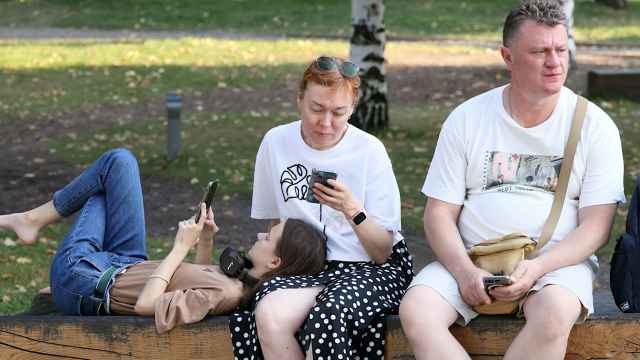Russia’s state media regulator said Friday that it was imposing new restrictions on WhatsApp for what it called repeated violations of Russian law, and warned the messaging service could be blocked entirely if it fails to comply.
Roskomnadzor accused the Meta-owned platform of being used “to organize and carry out terrorist activities,” as well as facilitate fraud and other crimes, according to a statement carried by state media.
“WhatsApp is not complying with requirements aimed at preventing and stopping crimes in Russia. For this reason, Roskomnadzor is consistently introducing restrictive measures,” the regulator said, adding that those restrictions “will continue to be expanded.”
The warning came as Moscow residents reported widespread problems accessing the app. Users across Russia have reported similar disruptions in recent days.
Roskomnadzor said in August that it was limiting voice and video calls on WhatsApp and Telegram as part of what it described as an anti-fraud initiative, a move both companies criticized. Despite the curbs, WhatsApp remains Russia’s most widely used messaging service.
On Friday, the regulator said it would move to block WhatsApp outright if it did not heed its warnings and bring its operations into line with Russian law. It also urged users to switch to Max, a government-backed messenger launched earlier this year as an alternative to foreign-made apps.
Max, which authorities promote as a secure platform for schools, universities and state agencies, must now come pre-installed on all smartphones and computers sold in Russia. While its user base is growing, it still lags far behind WhatsApp and Telegram.
A Message from The Moscow Times:
Dear readers,
We are facing unprecedented challenges. Russia's Prosecutor General's Office has designated The Moscow Times as an "undesirable" organization, criminalizing our work and putting our staff at risk of prosecution. This follows our earlier unjust labeling as a "foreign agent."
These actions are direct attempts to silence independent journalism in Russia. The authorities claim our work "discredits the decisions of the Russian leadership." We see things differently: we strive to provide accurate, unbiased reporting on Russia.
We, the journalists of The Moscow Times, refuse to be silenced. But to continue our work, we need your help.
Your support, no matter how small, makes a world of difference. If you can, please support us monthly starting from just $2. It's quick to set up, and every contribution makes a significant impact.
By supporting The Moscow Times, you're defending open, independent journalism in the face of repression. Thank you for standing with us.
Remind me later.






